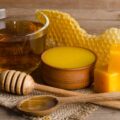“I know that a difference can be made through making small gestures rather than preaching,” Kamal Mouzawak says while sipping on a tumbler of arak, the anise-flavored spirit from the Levant. Though I could argue his gestures aren’t so small, they’re making a difference. Over the past 15 years, Mouzawak has constructed bed-and-breakfasts, eating places, and Beirut’s first farmers’ market with one goal: to create locations that unite and give voice to Lebanese people from different faiths and political backgrounds, particularly women.
At the farmers’ marketplace, Souk el Tayeb, I met a woman named Mona al-Dorr promoting her Guybrush, a puffed flatbread speckled with za’atar that she had made at home for years earlier than locating an outlet at the souk. I saw Nada Saber selliwass of warm-purple pickled turnips, referred to as money or Lebanes preserves. There had been Muslim women alongside Christian women, operating collectively to highlight the culinary traditions of Lebanon.
The souk spawned Mouzawak’s first restaurant, Tawlet. One female unit the menu with dishes from her respective location, like kibbeh basaliyehl from Kfardlekous, northern Lebanon, made with bulgur, caramelized onions, and pine nuts. Since Tawlet Beirut opened in 2009, Mouzawak released four extra eating places, supplying jobs and a platform for women around us. “I want humans to understand that this female and all the women of the Souk el Tayeb and Tawlet now have a role when I visited; I cooked alongside Tawlet’s government chef, Andrea Boulez.
Many of the dishes we made were cinnamon-dusted lamb chops, a crunchy cabbage tabbouleh with piles of mint and parsley, and marinated chicken skewers served atop flatbread originated from the ladies who work on the restaurant and Souk el Tayeb. (Get all of the recipes here.) Each dish did more than feed us. It commemorated the precise backgrounds of the character girls who developed them, even as celebrating the larger cultural heritage of us as an entire. E outdoor of being a spouse or mother,” says Zeinab Harb Kashmar, one of the cooks at Tawlet, via a translator.
One of Mouzawak’s new projects is a greater dream house than the do-properly task. However, it serves a crucial goal, simply the equal. It’s Beit Douma, a five-room nineteenth-century bed-and-breakfast that Mouzawak restored in Douma, one of Lebanon’s quality-preserved ancient villages. Situated on a hillside ninety minutes from Beirut, Beit Douma prizes neighborhood items on its menu and decor. “Beit Douma offers you a feel of the place. The cover for your mattress is from the village of Douma. The wine you’re ingesting is from the area. The dessert is made by way of [the manager] Sarah’s mom,” he says. “It ought to serve as an embassy of delight for the area.”
When I visited, I cooked alongside Tawlet’s government chef, Andrea Boulez. Many of the dishes we made were cinnamon-dusted lamb chops, a crunchy cabbage tabbouleh with piles of mint and parsley, and marinated chicken skewers served atop flatbread originated from the girls who work at the eating place and Souk el Tayeb. (Get all of the recipes right here.) Each dish did more than feed us. It honored the particular backgrounds of the women who developed them while celebrating the larger cultural and historical past of using an as an entire.
“I’ve known Kamal for 18 years and was one of the first girls to papaintith him at Souk el Tayeb, which opened in June 2004. It started truly small, with simply ten stands. At first, I began working inside the stall, selling my money jams, lane, olives, and other Lebanese preserves and, later, guy’oushe, flatbreads, which I have been making at home for years. The business started truly gradually; no person came at first. I was even throwing bread away.
But then it started to choose up as word got around. Kamal got more ladies open stands, and seven months later, it moved to downtown Beirut. Now, there are over eighty stands at Souk el Tayeb on Saturdays. I have four girls at my stall to assist me with the bread and pastries, and you need to wait in line for an hour and a half for my mannose. All the demand meant I ought to open a store in Beirut, Oum Ali, my nickname, “mother of Ali,” and collaborate with other eating places within the town that want to apply my bread.
Since I commenced working with Kamal 15 years ago, I’ve been capable of living the life I’d always dreamed aI grew up in Majdelzoun, a village in the south of Lebanon, and I didn’t want my four kids to live there to get hold of negative education. Joining Souk el Tayeb and Tawlet enabled me to bring my family to the town and position my kids through school. I constantly wanted to be the person that studied the whole thing, but I couldn’t. I’m delighted to do that for my children.”
“For years, my husband and I had a small meal shack inside the village of Kherbet Kanafar, within the Bekaa Valley, but we had to close down when the bombings started in 2005. He went to work with my brother doing indoor design, and I saved making my money at domestic. A buddy informed me that she knew someone who had a soul and desired to introduce me to him.
Kamal checked out my samples and informed me, ‘You’ll start next week.’ Over time, I elevated our quantities to satisfy the demand. My husband even left his job to work with me on the stand. Even with the bombings, we didn’t stop the souk for a second. Everything else changed into shutdown, but we opened each week, irrespective of what. The souk grew up, and I grew up with it.”












